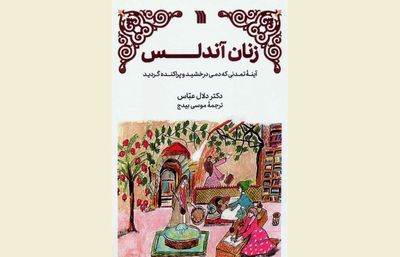Sorush is the publisher of “Andalusian Women” rendered into Persian by Musa Bidaj, a renowned Iranian translator of Arabic literature.
The book is considered a reference for many researchers and students, given its literary, social, philosophical, political, historical, religious and documentary value, and its synopsis of dozens of references and sources, among which there are rare and difficult to access.
“I touched on the details of everything related to Andalusian women, over a long period of time, extending the rule of the Arabs in Andalusia,” Abbas wrote in a preface to the book.
A chapter of the book discusses women’s status as free and slave women, and the consequent transactions, ownership, buying and selling.
Their position in society, which fluctuates between slavery and devotion, is surveyed.
The book also studies their culture and education and their fields of work as a writer, teacher, doctor and even a jurist.
The study also shed light on the women’s influence on society, political life and rulers in various eras.
The women who mastered different forms of art, from calligraphy, singing, playing and dancing, are studied in this book.
The research also illustrates customs, traditions, costumes, councils, and what is permitted and prohibited in relationships.
The study also provides a deep insight into the lives of influential women such as the daughter of Al-Mustaqfi, Hafsa Al-Rukunia, Al-Ramiqiah, and Hababa Al-Roumieh, who made a great impression.
The book carries rare poems by them, mentioning the occasions on which they were composed, the relationships that were woven around them, and the conflicts they sparked.
Source:Tehran Times

